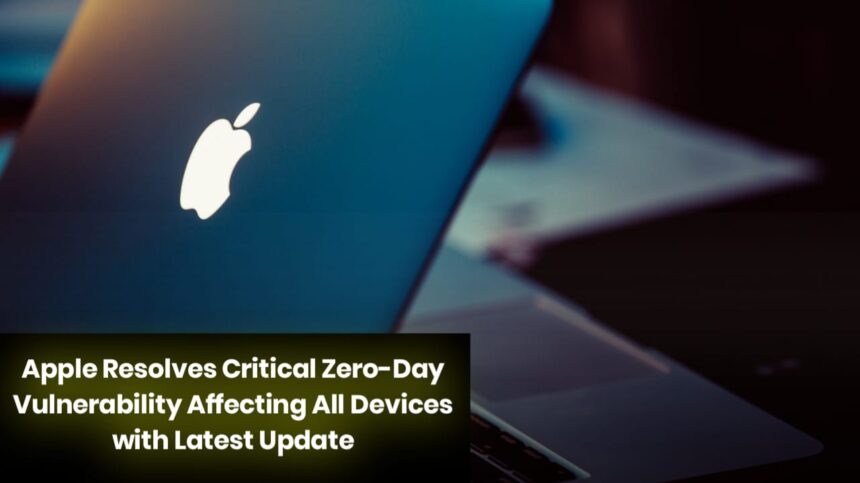Apple has issued an important security update for its iPhone, iPad, Mac, and other devices, fixing a severe zero-day vulnerability that had been actively exploited by hackers. The flaw, discovered in Core Media — the media engine responsible for handling various media functionalities across Apple devices — allowed attackers to manipulate memory corruption issues, giving them elevated privileges. This could have granted them unauthorized access to sensitive data stored on affected devices, posing a significant threat to users’ privacy and security.
Details of the Zero-Day Vulnerability:
The vulnerability specifically impacted devices running older software versions, prior to the release of iOS 17.2, which debuted in December 2023. The flaw was present across a broad spectrum of Apple devices, including:
- iPhones: Older versions of iOS before 17.2
- iPads: Running outdated iPadOS versions
- Macs: Affected macOS versions that were not updated
- Apple Watches: Certain older watchOS versions
- Apple TVs: Older tvOS versions
- Vision Pro: The company’s new mixed-reality headset
The bug allowed hackers to elevate their privileges, essentially gaining more access to the affected device’s system than they should have been allowed. In a worst-case scenario, this could lead to a full data breach, putting user information at risk.
Apple’s Response and Fixes:

Apple moved swiftly to address this critical vulnerability. The company released a set of security patches that not only fixed the zero-day flaw across all its impacted devices but also enhanced device security by enabling Apple Intelligence by default on newer devices. Apple Intelligence is an advanced security feature designed to provide deeper protection against potential threats.
While Apple did not publicly credit any individual security researcher for discovering the bug, it is known that the vulnerability was serious enough to warrant an immediate patch. This swift response was aimed at preventing further exploitation of the flaw, which had already been used by hackers to compromise devices before the fix was issued.
How the Zero-Day Exploit Worked:
The exploit targeted Core Media, a critical component of Apple’s media engine, which handles media-related functions across the operating system. The memory corruption vulnerability allowed attackers to manipulate system memory, granting them unauthorized access to sensitive areas of a device’s software. Through this exploitation, hackers could potentially gain control of the device, access personal information, and even bypass some security measures.
Impact on Users:
The vulnerability posed a significant risk for users with devices running older versions of iOS or macOS, as these systems were more vulnerable to attack. Hackers could use this flaw to access private information such as messages, contacts, emails, photos, and more. The risk was particularly high for users who had not updated their devices to the latest software versions, as they remained exposed to potential exploitation.
Apple’s Ongoing Commitment to Security:
This is the first zero-day vulnerability exploited in the wild in 2025, but it adds to a growing list of security issues Apple has had to address in recent years. In 2024 alone, Apple fixed at least seven vulnerabilities that were actively being exploited, according to TechCrunch’s ongoing tally. With the release of these security patches, Apple continues its focus on ensuring device security, even as cyber threats evolve and become more sophisticated.
How to Stay Protected:
To ensure your device remains secure, Apple strongly encourages users to update their devices to the latest software versions. This will not only patch the zero-day vulnerability but also ensure that your device has the latest security improvements and bug fixes. Users can update their devices manually through the Settings app on iOS devices or System Preferences on macOS, or enable automatic updates to stay protected.
For added security, Apple recommends that users regularly review their privacy settings, utilize strong passwords, enable two-factor authentication (2FA), and be cautious about downloading apps or content from untrusted sources.
Conclusion:
Apple’s prompt action in addressing this zero-day vulnerability underscores its ongoing commitment to protecting user data and improving the security of its devices. While the flaw was serious, Apple’s swift patching ensures that users can continue to rely on their devices without fear of compromise. As digital security threats continue to evolve, staying up-to-date with software updates remains one of the most effective ways to safeguard your device and data against potential attacks.







